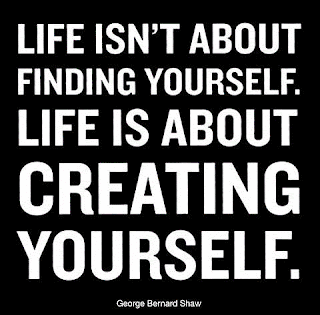Is the
meaning of life to prepare us for life in heaven and to behold God in a second
life in heaven? Or is it to find our full potential? Or both?
Well without
God there is no purpose for life. But we all have purpose in life! Some think the
purpose is to be happy. Happiness can be realizing that you are unique and amazing
and lovely!
We all decided that this was NOT the meaning of life:
Life
comes with lots of choices, responsibility, and decisions.
We also agreed that we find meaning when we "detect" our mission. We disagreed with this quote as we felt that we do not "create" our mission - God does that.
We also asked "Are Happiness and Meaning the same thing?"
We discussed the different meanings for the following terms:
Deist (everyone in our group is a deist): someone who believes that a Supreme Being created the world and left it alone.
Theist: someone who believes in a Being Who exists beyond or outside the natural world, yet Who is able to be involved in the course of human events.
Agnostic: someone who believes that we can never attain adequate answers to profound questions such as the existence of God or the meaning of life.
Atheist: someone who believes that there is no such thing as God.
Nihilist: someone who does not believe that life is meaningful at all.
One of our philosophers for the day was St. Thomas Aquinas
1225-1274
• Medieval Italian philosopher and
Dominican priest
• Famously illustrated with the church
in one hand and Aristotle’s writings in the other
• His views were often attacked in his
lifetime but soon came to dominate Catholic philosophy
• Canonized in 1323 and made Angelic
Doctor in 1567
• His greatest work was the Summa
Theologica (summary of theology)
• He believed that our essence
is what we really are and existence is what we do throughout our life
Our second philosopher for the day was Jean-Paul Sartre
1905-1980
•
20th
century French philosopher
•
One
of the most famous atheist philosophers
- was an existentialist
•
He
believed that free choice is the defining characteristic of human existence
•
He
did not agree that God is needed to make human life meaningful.
•
He
turned Aquinas’argument upside down: he
asserted that human existence precedes human essence
•
He
thought that self-creation is what makes humans responsible for the way they
live their lives
This is my last Chronicle!










